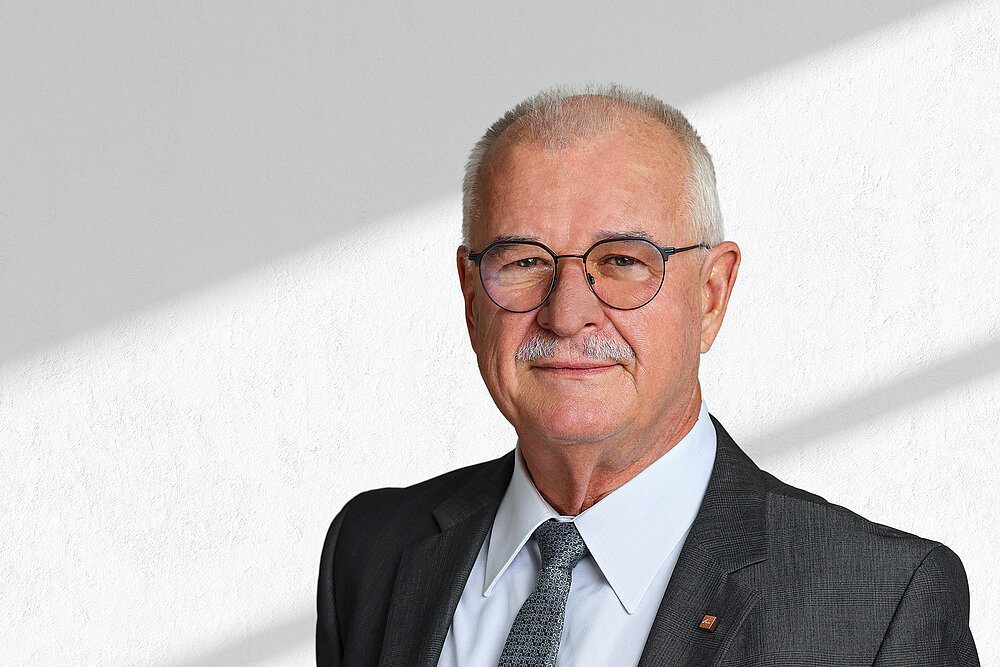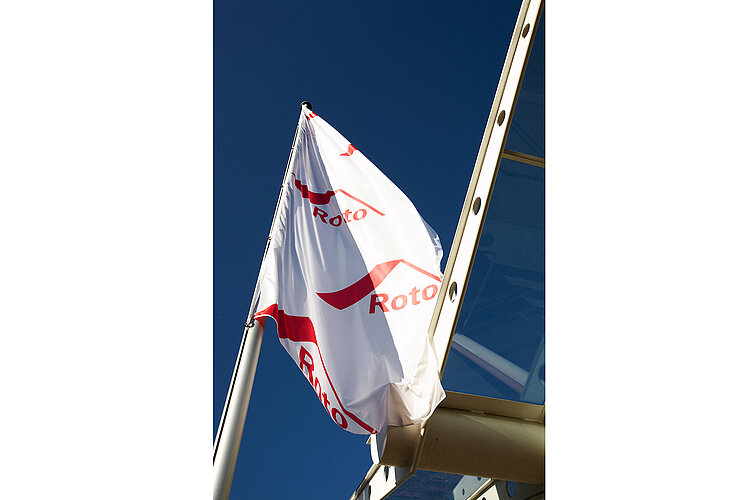
Trade Press Day 2022 (Holding): Resilient: Roto Group enjoys increased turnover
Nearly 30% increase in net turnover: The Roto Group has made strong gains within the last three years / All three divisions have displayed resilience in the face of crisis / Inflation in important markets inhibits company growth in the current business year / Huge trend towards energy efficiency is still continuing / Germany's status as an industrial centre is under threat / The Roto Group is planning additional growth via acquisitions as well
Rottach-Egern / Leinfelden-Echterdingen – “In the two years since the outbreak of the coronavirus pandemic, it has become clear that the Roto Group is capable of handling even unknown and major challenges with confidence.” This positive conclusion was drawn by Dr Eckhard Keill, sole Chairman of Roto Frank Holding AG, at the 17th International Trade Press Day. Journalists from 15 countries listened to his speech in person or via livestream. The Chairman went on to state that over the last three years, the Group turnover has increased by almost 30% cumulatively. This impressive development in difficult times was possible not least thanks to a large number of new customers acquired across the three divisions of the Group over the period in question. Clearly, the divisions understood how to meet the central needs of their customers with regards to reliability of delivery and product quality, even in extremely volatile procurement and sales markets.
Leggi tutto
Strong performance
“In each of our divisions, our people have efficiently and successfully tackled the ever-increasing challenges that have arisen since 2020”, Dr Keill added, looking back over recent years. “I would therefore characterise the Roto Group today as a resilient company, and our Divisions more than ever as trustworthy partners for their customers.” He states that the employees of the Group – now numbering around 5000 – have demonstrated a high level of flexibility and dedication over an extremely long period. As a result, the Roto Group managed to achieve record turnover of 807 million euros by the end of the 2021 business year. However, he adds that the optimism felt at the start of the 2022 business year has faded as the hoped-for stabilisation of the procurement markets has failed to materialise and the outbreak of war has created additional new risks and difficulties for the construction industry, and not just in Europe.
Germany's status as an industrial nation is put to the test
In his assessment, the “hardest part” of the journey towards normalisation of the situation is still to come for the national economies of Europe, and in particular for the German economy. “A large portion of the turnover of the Roto Group comes from Germany. We are therefore particularly worried about political missteps that harm this country and its people”, Dr Keill adds, prefacing his personal observations about the geopolitical and economical situation. Any company with a solid economic situation could weather one or two years of poor results. As such, his concerns do not relate particularly strongly to the Roto Group and its results in 2023. “The more important question is whether Germany's status as an industrial centre will be eroded, resulting in lasting harm to prosperity and spending power within this nation. The question is whether an economy that is so vital for the economy of the EU is sawing through the branch that supports its welfare state.”
Worries, fears and predictions
Dr. Keill states that responsibility for the belief that the crisis is “overwhelming” – which has become widespread in Germany in particular – lies not just with failures in the political sphere but also with a specific aspect of the “German soul”. “After years of growing prosperity, the German people have grown accustomed to seeking absolute certainty and find it particularly difficult to leave their comfort zone and think differently.” He indicates that the myth of the all-powerful state capable of ensuring the comfort of all is not conducive to correcting this viewpoint. In his view, it is still unclear how private households will act in a time of high inflation and a lack of economic growth. “Will people save money on renovating their homes, or on restaurant visits and holidays? Will people now invest their savings in their homes, or conversely put even more money aside? If you ask three different experts, you'll get five different answers”, states Dr. Keill.
Demand stabilisation expected
However, Dr. Keill's assessment is that the construction element sector will continue to benefit from the urgent concerns of citizens regarding improving the energy efficiency of their homes. Although a decline in the new build market is forecast for Europe, America and Asia alike in 2023, he states that this does not necessarily mean that demand for building elements will fall dramatically. In the medium term, he believes that manufacturers of windows and doors will enjoy a lasting spike in demand “in the home”, which will only come to an end once existing housing stock has been renovated for energy efficiency and a sufficient amount of additional living space has been created. “We are therefore talking about the distant, very distant future.”
Necessary flexibility
The three divisions of the Roto Group therefore remain optimistic. The expected drop in demand over the second half of 2022 reportedly began “on schedule” in July. After this point, the retail market and large manufacturers would allow their stocks to deplete to their levels prior to the pandemic. In his assessment, the fact remains, however, that global reconstruction needs to take place as quickly as possible. Dr. Keill believes this to also be a social issue. “The construction industry will experience strong demand for additional, modern living space in the coming years as well.” In any case, Roto remains well-stocked in terms of its raw material inventory, ensuring that the divisions are able to react flexibly to the needs of their customers.
Widening skills shortage
Dr. Keill believes that the Roto Professional Services GmbH division will enjoy particularly good performance in the 2023 business year. He states that the “revitalisation” of older windows and doors of acceptable quality by replacing hardware and seals will become an attractive solution in view of the dramatic rise in energy prices, in an environment where high interest rates stand in the way of complete retrofitting of building envelopes along with window replacement. In his assessment, the newest division of the Roto Group is ideally equipped to tackle rising demand for these kinds of services concerning windows and doors, not least thanks to the acquisition of additional companies and integration of these companies into the network of “Service Friends”.
Further acquisitions planned
Divisions of the Roto Group will continue to use strategic acquisitions as a means of generating additional growth in future. “The integration of companies such as the Deventer Group with its locations in Germany, Poland and the Netherlands, or Fermax in Brazil, have strengthened the Roto Group and its market position in these countries. We will therefore continue to search internationally for companies that would be a good fit for us.”
In closing, Dr. Keill returned to the topic of the intersection between politics and economics in view of the complex crisis scenarios in the immediate future, which are unfortunately impossible to completely ignore. Successful commercial enterprises are generally managed and evaluated on the basis of key figures – in other words, facts. In contrast, he believes that in recent years, decision-making in the political sphere has become far more strongly influenced by specific ideologies than before. In this way, he notes an increasing alienation between economics and politics. The consequences of this alienation are felt by citizens, as important decisions are not taken and it has become impossible for solutions to be put in place rapidly.
However, the current challenges are extremely complex and would be better tackled by a trusting collaboration between the economic and political spheres. In particular, he believes that it is important to “train” the ability to react flexibly but deliberately to changing circumstances. Dr Keill concluded his speech by stating : “Preparing people and organisations – society as a whole – to face great challenges with intelligence and optimism is more important now than ever before”.


